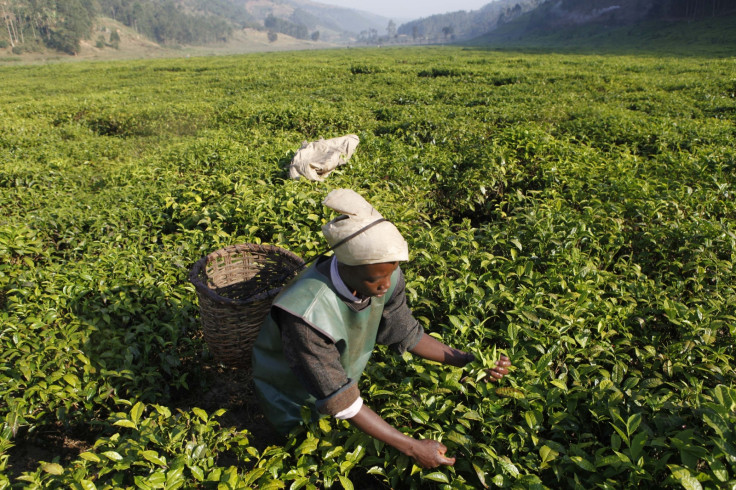Rwanda poverty statistics 'altered to support Kagame's third term' claims activist

The Rwandan government might have altered its poverty statistics to convince people that president Paul Kagame achieved an economic miracle and thus should stay in power for another term, human rights activist Rene Mugenzi told IBTimes UK.
Mugenzi made the comment after France 24 published a report accusing Kigali of manipulating poverty rates while data obtained by the media organisation "suggested it was actually on the increase".
The article cited a disagreement between Rwanda and Oxford Policy Management (OPM), which provides statistics on Rwanda's socio-economic status, over the methodology used in a survey on household living conditions (ECV4) focussing on the period 2013-2014.
"Rwanda has been praised for its economic development but in reality there has not been a very tangible development and people's lives have not been changed," Mugenzi said and added that allegedly altered poverty statistics in Rwanda are linked to the fact that Kagame has been allowed to run for a third term in 2017 election.
Earlier this year, the government launched a national consultation after some 3.7 million Rwandans are believed to have signed a petition calling for the government to scrap presidential terms so that Kagame could run in 2017 election.
Mugezi said: "The government uses poverty statistics to argue why Kagame should stay in power. They claimed they have been able to improve the quality of people's lives and reduce poverty. So they claim Kagame is the best person.
"I hope that donors will scrutinise what Rwanda is reporting to them and investigate on whether their money is effectively used to make any difference. The UK government - Rwanda's biggest donor - has to make sure that money is making a difference and helping people other than the Rwanda government."
He added that the Rwanda economy is dominated by companies linked to the ruling party Rwanda Patriotic Front (RPF). According to the Financial Times, RPF owns, among other things, a construction and road-building company, granite and tile factories, a furniture company, a chain of coffee shops and has a stake in South African mobile phone provider MTN.
IBTimes UK contacted the House of Commons Select Committee and the Department for International Development (DFID), but has not received a response at the time of publishing. However, a spokeperson for the DFID told France 24 that the department was aware "of concerns raised by some people regarding the latest poverty estimates in Rwanda".
A 2013 report by the House of Commons Select Committee urged the government to stop providing general budget support to Rwanda after reports warned that Rwanda supported the M23 Rebel Group fighting in the Congo, a claim Rwanda has vehemently denied.
Rwanda's response
When contacted by IBTimes UK for a comment, both a spokesperson for the Rwandan government and Sam Ruburika - communication Specialist at the Ministry of Finance - referred to a statement by the National Institute of Statistics of Rwanda, which slammed claims by France24 as "fundamentally wrong."
The institute said: "Rwanda and its development partners have invested heavily in reliable statistical capacity, abiding by international standards. Scrutiny of our work is welcome, and indeed beneficial. Ultimately the facts speak for themselves."
A few days after the France 24 Report, the government said in a statement that the country's economy is to grow by 7% by the end of the year. The International Monetary Fund (IMF) also said it had no reasons to doubt statistics contained in the ECV4.
Frank Habineza, President of opposition Democratic Green Party (DGPR), said he was very surprised after he read the report. He told IBTimes UK: "Further scrutiny is required. My wish is to see poverty levels not only reduce in figures but in the daily life of local communities at the village level as in urban areas. My message to the government is, the debate should move beyond statistics."
© Copyright IBTimes 2025. All rights reserved.






















